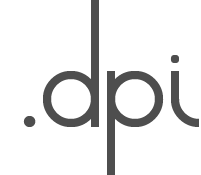.dpi 21 is the second issue in a three-part series focusing on the theme of freedom while exploring the practices of several contemporary media artists and authors as they participate in actions for freedom.
The concept of freedom is multifarious; conversations surrounding it stretch back to the earliest of times as articulated by Ancient Greek and Roman philosophers. Freedom of expression is naturally an important tenet of this conversation, particularly when considering contemporary art and community. With this in mind, political actions reflect the desire for freedom of individuals and groups and serve as chief impetus for which contemporary media artists wish or need to act upon. As a unifying concept considering freedom in action, Indian author and activist Arundhati Roy suggests, “a feminist is a woman who negotiates herself into a position where she has choices.”. dpi 21: Freedom: In Action reifies how the contributors, and their subjects, fulfill their own sense of freedom and freedom of expression in the context of a networked, media-saturated Western world.
Joanna Zylinska's photographic contribution, placed within the issue's banner, expresses a desire to liberate boundaries between the analog and the digital. Zylinska produces “images that creatively remediate the history of photography as well as its kinship with other media.” Necessarily still as a digital image, Zylinska's contribution is a provocative study in contrasts (public/private, quiet/noise, freedom/captivity) that revels in its own unraveling and sets the stage for the issue.
Circadian, the minimalist soundwork produced by i8u, also known as France Jobin, provides a contemplative experience, simultaneously building rich environments in which the listener becomes immersed. Like Zylinska, i8u's piece also intermingles the digital and the analog and complements the issue's dimensionality. The minimal quality, yet expansive nature of the music, embodies a sophisticated economy of volume and subtlety.
Where Zylinska and i8u examine the possibility and beauty found in blurring the frontiers of their respective practices, Tom Kohut discusses an over-turning of boundaries related to gender stereotypes in an examination of video and performance artist Wendy Geller's (1957-1996) artistic practice. In his article, Kohut pays tribute to and celebrates the important role that Geller played as forerunner in the discussion on sexuality and gender roles, instigating freedom from them in what he calls a “spirited pastiche.”
In her article based on artist and hacker-cum-educator Stefanie Wuschitz's Miss Balthazar's Laboratory ,Katharina Galla delves into how this collective provides opportunities to women around the world by tipping the scales of access to electronics and digital media. Facilitating free workshops to women, enabling them to experiment and explore as well as mixing politics with the act of creation, Miss Balthazar's Laboratory empowers women to be creators and designers rather than users and consumers.
Mariève Desjardins interview with artist Sarah Roshem examines a performative study of personal well-being in You Will Not Suffer. This interventionist and unconventional work, performed using Roshem's fictitious medical laboratory SR Lab, re-creates instruments of torture out of wax and other materials, inviting participants to handle them. In a ceremonial-like presentation lies the ultimate proposal to challenge over-arching systems of power and power abusers, and for the individual to reclaim personal healing by participating in the act.
Finally, Olga Kisseleva's videowork Border/No Border illuminates contemporary difficulties in cross-border movement. At its core Border/No Border comments on the state of emigration in Europe and the disparities between free will and conformity, have and have not, that are cultivated by unrestrained consumption and commercialization. Mariève Desjardins also takes the opportunity to discuss Kisseleva's work "It's time", in interview. The notion of a post-Soviet world runs through this work and , the gift that Kisseleva offers to its original viewers, members of the industrial town of Ekaterinburg, Russia, is quite literally, to have an influence over time. Poetically, Kisseleva suggests it, “thus treats the delicate question which is the difference between the democracy and freedom.”
Freedom, as a concept with vast and varying proportions, textures, tastes and smells, brings much possibility. Freedom in action however, whether by agitation, cooperation or by the act of creation itself, expresses so much more. In this, we speak our voice.
Bibliography
Roy, Aruhndhati. Dans: Women On War: An International Anthology of Writings From Antiquity to the Present. Ed, Daniela Gioseffi. New York: The Feminist Press at the City University of New York, publication, 2003. Print.
